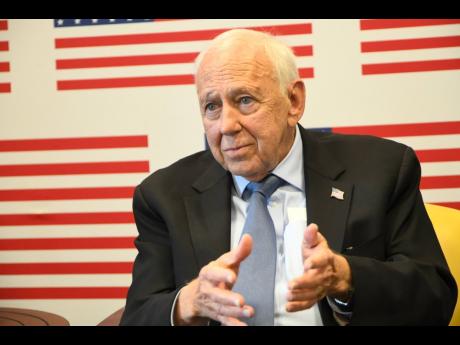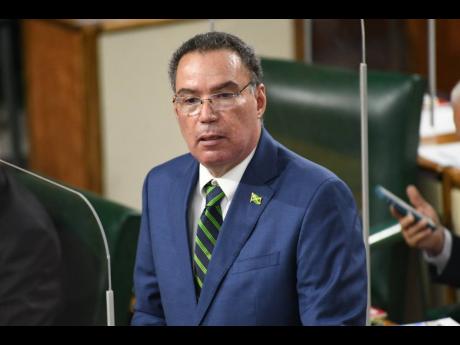The US can revoke a visa for minor offences – immigration attorney
The revocation of the US visas of Minister of Energy Daryl Vaz, his wife Ann-Marie and former minister of government Phillip Paulwell has burst back on centre stage with the recent statement by the former US Ambassador to Jamaica Donald Tapia that he believed that the visa of the government minister was wrongfully revoked.
The former Ambassador told Cliff Hughes Online earlier this week that he would use his influence to right the wrong done to Vaz, as he sees it.
But in an interview with The Gleaner, Tapia made it clear that the decision to revoke the visas was taken by the consular section of the US State Department and he had no input in the matter.
“As the ambassador when something is going to affect my posting, I am told of the revocation, but not the conditions that led to the taking of that decision. This decision was taken before I became ambassador,” he said.
He made clear that, as ambassador, he would not get involved in the revocation of visas.
“This is done solely by the consular section of the State Department,” he said.
Tapia, when pressed on what were the conditions that led to the revocation of the visas, referred The Gleaner to the consular section of the State Department.
Asked how he, as a former ambassador and with a change in administration in Washington, would be able to get a reversal of the visa revocations, Tapia said that he hoped that the professional staff in the consular section would take into consideration any suggestion put forward.
Tapia told The Gleaner that he feels that under his watch, a wrong was done and he would like to correct that wrong.
“I don’t know how it will come about. I stub my toes when I was there in not getting it done while I was there,” he said.
In 2019, the United States announced that the US visas of Vaz and Paulwell had been revoked, but gave no reasons for the revocation. Despite several attempts to ascertain what led to the revocations, the US government has remained mum on the matter.
The State Department website lists a number of reasons for the revocation of a US visa.
Chief among the reasons are: if a visa was fraudulently issued or used fraudulently; a person no longer qualifies for a US visa usually because of criminal activities: suspected immigrant intent: suspected status violation, violation of visa status or conduct inconsistent with representations in the visa process.
A highly placed former diplomat, residing in the United States, told The Gleaner that under the Patriot Act, the US government has access to the US bank accounts of people residing overseas and such accounts are monitored and unusual activities on these accounts could also trigger suspicion on the part of the US authorities that could lead to the revocation of US visas.
“I am not saying that this is the case of either Minister Vaz or Mr Paulwell, but the US government can use whatever means it thinks necessary to revoke a visa,” he said.
Immigration expert Diane Claxton said that the State Department is under no obligation to give a reason for the revocation of non-immigrant visas, as the visa holder has no rights under US laws.
“They can revoke a visa for minor offences. The visa is given as a benefit and so the holder has no right to due process,” said Claxton, an immigration attorney based in Orlando, Florida but with offices in four other countries.
She said that where a visa is revoked, the burden of proof rests with that individual. However, she pointed out that it is highly unlikely that the State Department would revoke a visa based on a 40-year innuendo unless new evidence came to light.
Claxton further pointed out that under the Patriot Act, the Department of Homeland Security and the State Department have wide powers to scrutinise anyone.
She further pointed out that the ban on a visa could be for five to 10 years, but the person whose visa has been revoked could apply for a waiver, citing mitigating circumstances, but the department is under no obligation to grant such a waiver.
Claxton said that there is a very low threshold for the revocation of non-immigrant visas.
The Gleaner reached out to the press office of the State Department seeking to find out what were the circumstances that led to the revocation of the visas of the three politicians as well as certain police officers, but received no reply.
However, highly placed persons in diplomatic circles in New York and Washington told The Gleaner that it is hardly likely that the consular section of the State Department will make its reasons for revoking visas known.


